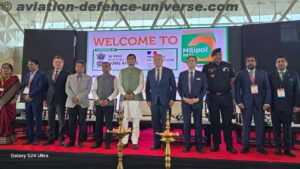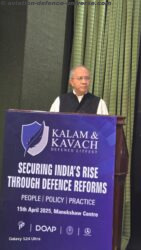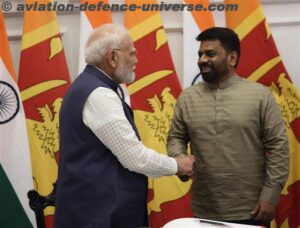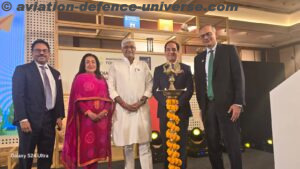By Suresh Somu
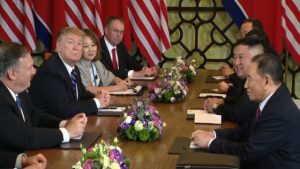
Jakarta. 08 September 2019. The North Korea-USA talks appear to be like a fire-cracker with a loud of noise. Despite North Korea putting on the heat, no sign of the Americans’ willingness to soften its stance in demanding North Korea for full denuclearization; but not much desired results towards some form of amicable peace.
The US demands for Pyongyang to denuclearise and North Korea’s demand for dramatic relief from international sanctions imposed for its nuclear and missile tests, which it pursued for years in defiance of UN Security Council resolutions; both sides are unwilling to compromise. The recent spate of events has only created the atmosphere of hostility, mistrust between the US, North Korea and its allies.
BILATERAL TALKS A MUST
The world is looking at the unfolding saga with a lot of uneasiness simply because having nuclear missiles at one’s backyard is not something to wish for. If at all, at any cost, there must be an amicable solution, with minimum sound, and to seriously seek to ease tensions through bilateral means.
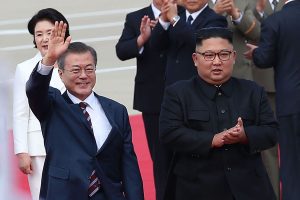
In earlier times, such painstaking efforts were vastly attempted by South Korea and Japan to meet the North Korean Chairman. Mr Kim, in his unspoken words, but the action could be interpreted by the statement from Vice Minister of Foreign Affairs, Ms Choe Son-hui. “I want to make it clear that the gangster-like stand of the US will eventually put the situation in danger,” AP quoted Ms Choe as saying.
So, in some ways, sometimes some loud noises may be effective as action speaks louder than words and so did North Korea.
MISSILE ACTIVITIES
The recent spate of missiles activities, including test firing of a rocket launcher in the Korean Peninsula was a clear interpretation of the North Korea position. However, President Trump remained unfazed and confident that Mr Kim will keep his promise.
On the contrary, it was a clear indication from Chairman Kim that his patience is wearing thin. So quite literally, for now, hopes are dashed to reignite stalled talks between the US and North Korea.
US antics have given some bandwidth, and the working group relied heavily on its allies to work closely with North Korea regime for an eventual agreement for full denuclearisation. More groundwork and deliberations are further envisaged to facilitate for an eventual meeting between the two leaders.
SERIOUS SOLIDARITY
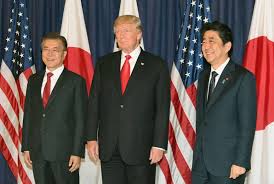
But for all of that to happen, first, there must be sincere and serious solidarity between the allies: North Korea and Japan.
It goes back in time between 1910 and 1945, thanks to bitter memories of Japan’s brutal colonialisation of Korea. The wound still raw is of no surprise that it had severely dampened the bilateral relations between the two countries.
While Japan harps on normalised relations with an eventual settlement of reparation claims, South Korea, rather strangely, ruled otherwise.
In past months, South Korean court rulings had ordered Japanese firms to compensate forced labour victims that angered Japan. And soon after ties nose-dived when Seoul was accused of improper handling of sensitive imports with further removal from Japan’s list that enjoyed streamlined export control procedures.
ACRIMONIOUS DISPUTE
In essence, the acrimonious dispute has escalated to adversely affect trade and security cooperation.
And above all, the final straw was South Korea’s decision to exit from the security pact with Japan. It is rather perplexing especially in the light of North Korea’s recent missile tests and somewhat gives the impression South Korea does not quite grasp the regional security situation.
The feelings of uneasiness appear to be plain to see. The US Department of Defence has expressed “strong concern and disappointment” with South Korea. President Moon Jae-in’s announcement to cease participation in 2016 General Security of Military Information Agreement (GSOMIA) with Japan has serious ramifications.
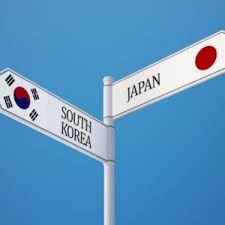
Japan and South Korea will have no joint intelligence sharing about joint security concerns including North Korea and China. And will not be able to cover gaps in their own intelligence gathering. On the ground, the detrimental effect will also pose greater risk to the US troops stationed in South Korea increase further complications and add a new level of uncertainty to the crisis.
ECONOMIC UNCERTAINTY
With the recent incursion by China and Russia into South Korean airspace, it will be very challenging to respond to such activities in the current climate.
So this is rather not a popular move undertaken by President Moon. It only adds to economic uncertainty for the nation and much to be seen how Japan handles the licensing of exports to South Korea under national security restrictions.
However, Japanese Foreign Minister Taro Kono suggested that the trade dispute should not be linked to intelligence sharing agreement but South Korea opined otherwise. They would rather seek to deepen bilateral cooperation with the US rather than pursue multilateral cooperation.
All of this simply exhibits that the relation between South Korea and Japan is deteriorating and with an open rift developing, it will reduce the ability of the US to work with its allies closely to address the security challenges presented by North Korea.
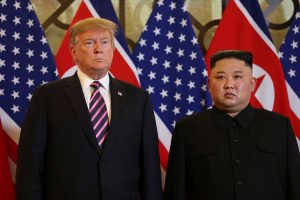
On a grander scale, it’s about time that US intervenes and plays an active role by resolving conflicts between its allies if it wants to protect cooperation, resume talks with North Korea and keep tab on China.
But this has to be done with minimal noise if anyone wants to evoke some desired results towards some form of peace. It’s sometimes like a ‘Catch 22’ situation, a frustrating situation in which someone is trapped by contradictory rules.
End of the day, who is prepared to give way as the current situation with the existing rules and regulations and temperamental, rather unpredictable, moods, actually stop a problem from being solved.






































